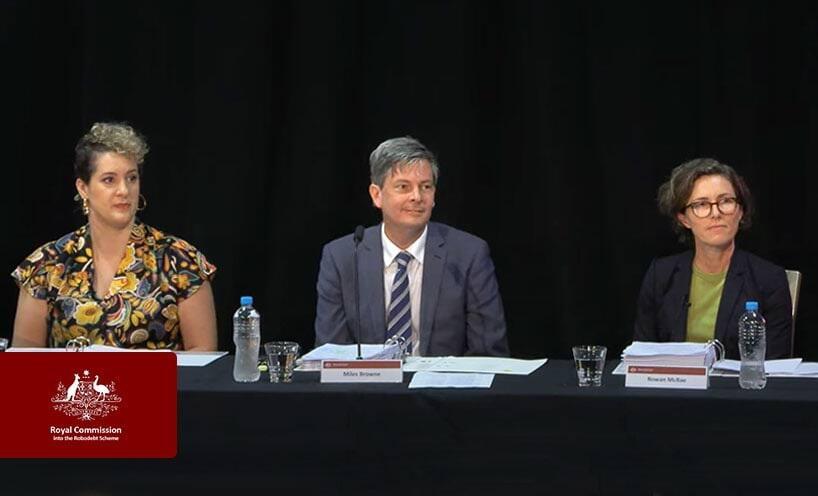In a startling revelation, a groundbreaking report has surfaced, shedding light on the origins of Robodet. From 2016 to 2019, the Robodebt scheme raised more than half a million inaccurate Centrelink debts through a method of ‘income averaging’, which has since been ruled unlawful.
The scheme was ruled an unlawful method of automated debt assessment and recovery implemented under the Abbott government and employed by the Australian government agency, Services Australia, as part of its Centrelink payment compliance program
Legal Aid Victroia successfully challenged the lawfulness of Robodebt in the Federal Court in 2019, contributing to the broader campaign that ultimately led to the dismantling of the scheme.
In 2020, a class-action lawsuit resulted in the Australian government settling for $1.2 billion, admitting that the system had unlawfully raised debts against thousands of citizens. As a result, the system was abandoned, and public trust in both automated systems and government handling of welfare matters was severely damaged.
Rowan McRae, Executive Director, Legal Practice, Civil Justice, Access and Equity appeared before the royal commission alongside Miles Browne, Managing Lawyer, Economic and Social Rights, and former client Deanna Amato, whose Federal Court case helped dismantle Robodebt for good.

However, experts now argue that the problem with ROBODEBT wasn’t the use of AI itself but rather the lack of proper implementation and oversight. AI, when utilised responsibly and ethically, has the potential to streamline processes, reduce errors, and improve overall efficiency.
Contrary to popular belief, the report clearly states that Robodet was created solely through ordinary human decision-making applied at an unprecedented scale, without any involvement of artificial intelligence (AI).
Director of the Adelaide-based Centre for Augmented Reasoning, Professor Anton van den Hengel said “The Report into Robodet has shown that problems arose as a direct result of human decision making,”
“The report clearly states that there was no AI involved, just ordinary human decision-making applied at scale. Automated application of human decisions magnifies their impact, but they remain human decisions”
Prof Van Den Hengel was commenting on the release of the Report of the Royal Commission into the Robodebt Scheme after recent commentary questioned the use of Artificial Intelligence in Government decision making.
“Let’s be very clear about Robodebt: there was no AI used at all in the operation of a scheme that was flawed at the very outset.
“The Report makes clear that Robodebt used income averaging to estimate debt recovery, which was ‘a patently unreliable methodology’. This is not just mathematically unsound, it has nothing to do with AI,”
“The problem with Robodebt was a human failure at mathematics. Whatever the motivation, the maths used for estimating income was wrong. That’s a human failure, not an AI problem,”
The royal commission is examining how Robodebt was established, how it handled concerns and criticism, the impacts on those affected and measures to prevent similar failures in public administration.
At it’s peak, the Robodebt recovery program issued a staggering 20,000 debt notices weekly, all calculated based on income averaging using ATO data.
As the scheme commenced, there was a remarkable surge in demand for our services. In January 2017 alone, visits to the Legal Aid Victoria centrelink information webpage skyrocketed by 500 per cent.
Additionally, throughout the program’s duration, Legal Aid Victoria received over 8,000 calls on it’s dedicated Robodebt phoneline.
AI Doesn’t Have A Political Position……
According to Prof Van Den Hengel, AI would never have come up with such an ideologically motivated scheme, because it has no ideology. “AI doesn’t have a political position, but it is very good at maths. If AI had been involved we’d never have had Robodebt,” said Van Den Hengel
“AI can help overloaded Centrelink workers be more effective and reduce queues. It can predict which courses or assistance might be best for which recipients, help people get the right services, and generally help create better outcomes for everyone involved.
“Instead of identifying how AI can help, we’ve labelled all AI in government as evil just because someone thought that adding Robo to a debt problem would get more attention,” he said.
“Much of the current fear of AI is baseless. The proof is that no one can tell you how AI is actually going to do any of the risky things people are worried about. People are afraid of change, not AI,”
“AI is a set of computer programs that do what people ask them to. We all use them multiple times a day. Don’t ban the technology because anything can be used for negative purposes; should we ban kitchen knives because some person uses one to attack another?
The report shifts towards AI itself is not is to blame for the shortcomings of ROBODEBT but rather the lack of a holistic approach to its implementation.
Always question the human motivation behind automation and there you will find the real culprit”, Prof van den Hengel said.
The Centre For Augmented Reasoning and the Australian Institute For Machine Learning are rated in the Top 5 AI reasearch institutions in the world.








